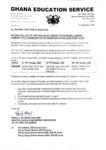Top 10 Health Complaints Faced by Teachers Worldwide
We often hear the sentiment: “Teachers are the backbone of our society.” They shape young minds and dedicate themselves to educating future generations. But amidst their crucial role, how often do we consider their own well-being? As teachers, we often find ourselves asking:
- What are the specific health risks associated with our profession?
- Are there common diseases that disproportionately affect teachers?
- What is the most common illness reported by educators?
While teaching is sometimes perceived as a relatively healthy profession, the reality is that the unique demands and working conditions place teachers at risk for a variety of mental and physical health problems.
Challenging the Myth: Teacher Health Beyond Mental Well-being
Numerous studies have explored the mental health status of teachers, and it’s often suggested that they experience poorer mental health compared to other professions due to the significant demands placed upon them. However, a study in France offered a different perspective. Their findings indicated that teachers did not necessarily have poorer mental health but instead showed a higher prevalence of physical health problems, particularly affecting the ears, nose, and throat. To a lesser extent, depending on gender, issues related to the skin, eyes, legs, and lower urinary tract were also observed.
This highlights a crucial point: the health challenges faced by teachers extend beyond mental well-being. They are also susceptible to a range of physical health issues, including musculoskeletal disorders, respiratory problems, and contact dermatitis.
The Top 10: Most Frequent Health Complaints Among Teachers
So, what are the health issues teachers report most often? Research reveals the following top 10 health complaints:
- Lower back pain
- Tiredness
- Leg pain
- Voice disorder
- Headache
- Neck pain
- Anxiety
- Shoulder pain
- Varicose veins of lower limbs
- Sleep problems
Interestingly, when looking at the severity of these complaints, the top 5 were:
- Tiredness
- Leg pain
- Lower back pain
- Voice disorder
- Headache
The Unique Challenges: Voice Problems and Musculoskeletal Disorders
The teaching profession stands out as a high-risk group for voice problems. These disorders significantly impact a teacher’s quality of life and overall health-related well-being. Despite the prevalence of this issue, awareness among teachers regarding vocal health risks and specialized services remains limited. Notably, female teachers report a higher incidence of voice problems compared to their male colleagues.
Furthermore, teachers face a high risk of musculoskeletal disorders (MSDs), particularly affecting the back, neck, and shoulders. These issues can arise from incorrect posture while grading papers or prolonged periods spent writing on the board. In many developing countries, the continued use of chalkboards further exacerbates these risks, potentially leading to occupational respiratory illnesses and contact dermatitis from chalk dust.
A Call for Greater Attention to Teacher Health
Despite the vital role teachers play in society, less attention has been paid to the occupational health problems associated with their profession. Many studies have primarily focused on mental health or isolated physical health concerns.
It’s crucial to recognize the multifaceted health challenges faced by teachers worldwide. By understanding these common complaints and the underlying risk factors, we can begin to advocate for better support, resources, and preventative measures to ensure the health and well-being of those who dedicate their lives to educating the next generation.









